Google News
The Verge
398
Image Credit: The Verge
The best fitness tracker and smartwatch Prime Day deals
- Amazon Prime Day offers deep discounts on smartwatches and fitness trackers.
- Top deals include Apple Watch Series 10 and Amazfit Active 2 at lowest prices.
- Various options like Google Pixel Watch 3, Samsung Galaxy Watch 7 discounted.
- Fitbit Charge 6, Garmin Venu Sq 2 among discounted fitness trackers available.
Read Full Article
23 Likes
Medium
509
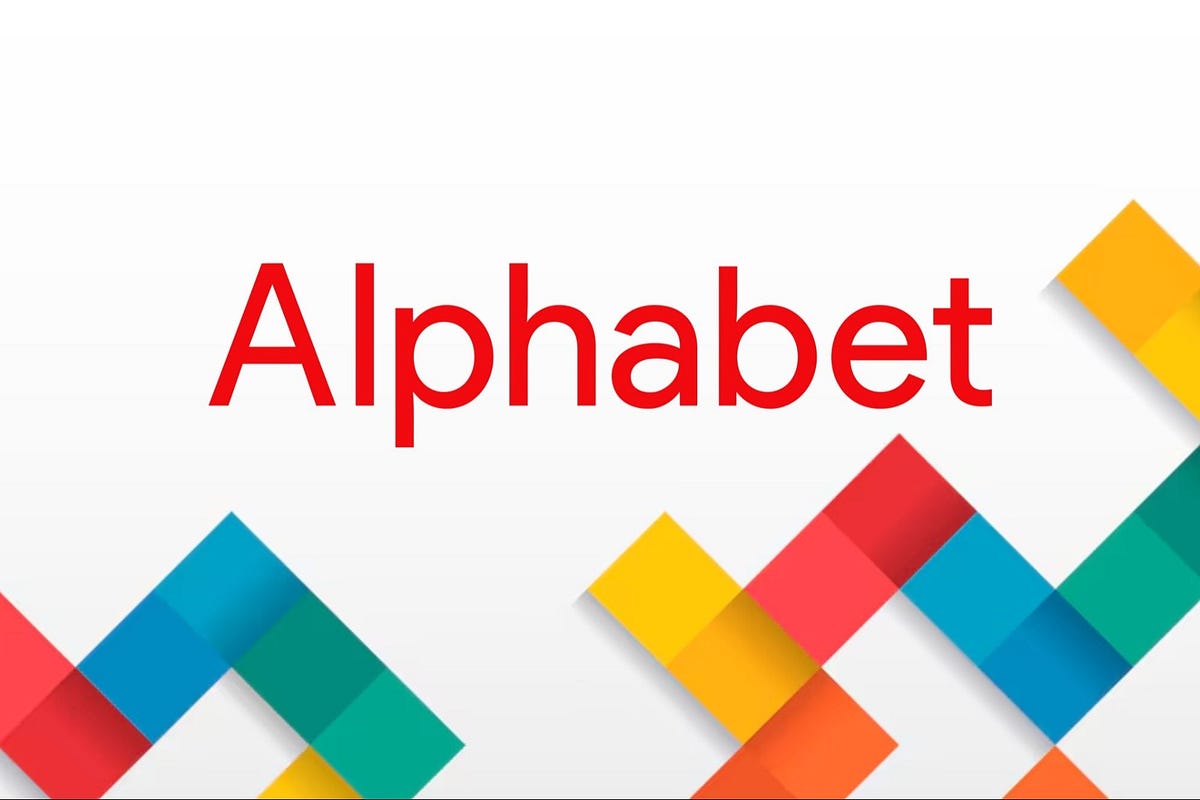
Image Credit: Medium
AI-Designed Cancer Drugs Near Human Trials, Marking a Major Milestone in Drug Discovery | VBM
- Isomorphic Labs, using AI in drug development, aims to accelerate timelines and improve outcomes, potentially reducing costs and speeding up treatment delivery.
- They will test compounds developed through AI, including AlphaFold 3, capable of predicting protein structures and interactions with DNA and drug molecules.
- Isomorphic Labs, founded in 2021, secured over $600 million in funding and partnered with big pharma to advance its AI-driven drug pipeline, focusing on oncology and immunology.
- While the exact details of the upcoming trials are undisclosed, success could validate AI in drug discovery, revolutionizing the industry in treating complex diseases like cancer.
Read Full Article
23 Likes
Medium
335

Image Credit: Medium
AI and the Death of Traditional Search Engines: How AI Assistants Will Replace Google by 2030.
- AI assistants like ChatGPT, Gemini, Perplexity, or Claude are growing rapidly, potentially leading to the decline of traditional search engines such as Google.
- AI assistants provide direct answers, remember context, and offer a conversational approach without distractions or ads, changing the way we interact with the internet.
- In the future, it is predicted that people may rely more on AI assistants for tasks like booking flights, finding recipes, and receiving personalized news updates.
- This shift signifies a transformation in how knowledge is accessed, with the possibility that 'search' as we know it today may be replaced by direct interactions with AI assistants.
Read Full Article
2 Likes
Droid-Life
268

Image Credit: Droid-Life
Gemini Live Gets a Few Pretty Major Upgrades on Foldables
- Google has announced some significant upgrades for Gemini Live alongside the launch of new foldable devices.
- Gemini Live, Google's assistant for foldables, will now have access to the cover screen on devices like the Galaxy Z Flip 7, allowing users to go live without fully opening the phone.
- Users can leverage Gemini Live in Flex Mode on foldables like the Galaxy Z Flip 7, enabling hands-free access to the assistant through the device's cameras.
- Additionally, Samsung's apps such as Calendar, Notes, and Reminders are now supported in Gemini Live, with plans to expand support to other smartphone manufacturers in the future.
Read Full Article
16 Likes
Discover more
Androidauthority
126

Image Credit: Androidauthority
Google’s powerful Gemini assistant is finally coming to the Pixel Watch and Wear OS
- Google is rolling out its Gemini assistant to Wear OS smartwatches, starting with the Samsung Galaxy Watch 8 series.
- Gemini on smartwatches supports voice interactions, offering an advanced experience with capabilities like answering complex questions and creating tasks.
- Existing smartwatches from brands like Xiaomi and OnePlus will also receive Gemini through an update.
- The Gemini assistant provides detailed answers from its knowledge base or the web, enhancing user experience on Wear OS.
Read Full Article
7 Likes
Androidauthority
56
Image Credit: Androidauthority
Google is turning Circle to Search into the game guru you never knew you needed
- Google is enhancing Circle to Search with gaming help, allowing players to get tips and information about a game they are playing on mobile.
- Players can now use the feature to find tips related to their current progress in the game, providing assistance for both beginners and expert gamers.
- This new functionality aims to offer help in identifying new characters, discovering winning strategies, and overcoming obstacles within a game.
- The introduction of gaming help to Circle to Search streamlines the process of accessing walkthroughs and strategy guides during gameplay on Android devices.
Read Full Article
3 Likes
Androidauthority
148

Image Credit: Androidauthority
Circle to Search gets a key upgrade first on the Galaxy Z Fold 7 and Flip 7
- The Galaxy Z Fold 7 and Flip 7 are the first devices to feature the improved Circle to Search with AI Mode.
- AI Mode in Circle to Search allows for longer questions in Google Search and provides more detailed answers.
- Users can add context to screen snippets for better results through AI Mode in Circle to Search.
- Google has announced that AI Mode is also coming to Google Lens.
Read Full Article
8 Likes
Droid-Life
134

Image Credit: Droid-Life
Google’s Circle to Search Adds AI Mode, Gaming Help
- Google's Circle to Search now includes AI Mode, a more powerful version of Google Search introduced in March 2025.
- AI Mode within Circle to Search allows users to ask follow-up questions and fine-tune search results for more complex queries.
- In addition to AI Mode, Google has introduced gaming help through Circle to Search, aiding users stuck in mobile games by providing tips or strategies, including video support.
- These new features are now available in the US, enhancing the capabilities of Circle to Search with advanced AI functionality and gaming assistance.
Read Full Article
8 Likes
Destination-Innovation
266

Image Credit: Destination-Innovation
Build a Culture of Experimentation
- Booking.com runs over 25,000 tests annually, transforming a small startup into a major player in the travel industry through extensive experimentation.
- Guidelines set by Booking.com's leaders include avoiding domination by highest-paid individuals, testing every decision, and trusting tools to drive experimentation culture.
- Creating a culture of experimentation begins with leadership commitment, redefining success and failure, fostering a growth mindset, and empowering employees to test hypotheses rapidly.
- Organizations like Google and 3M encourage creativity through dedicated time for side projects, spurring innovation, while rewarding experimentation helps combat the fear of failure and drive continuous trialing and innovation.
Read Full Article
15 Likes
Androidauthority
329
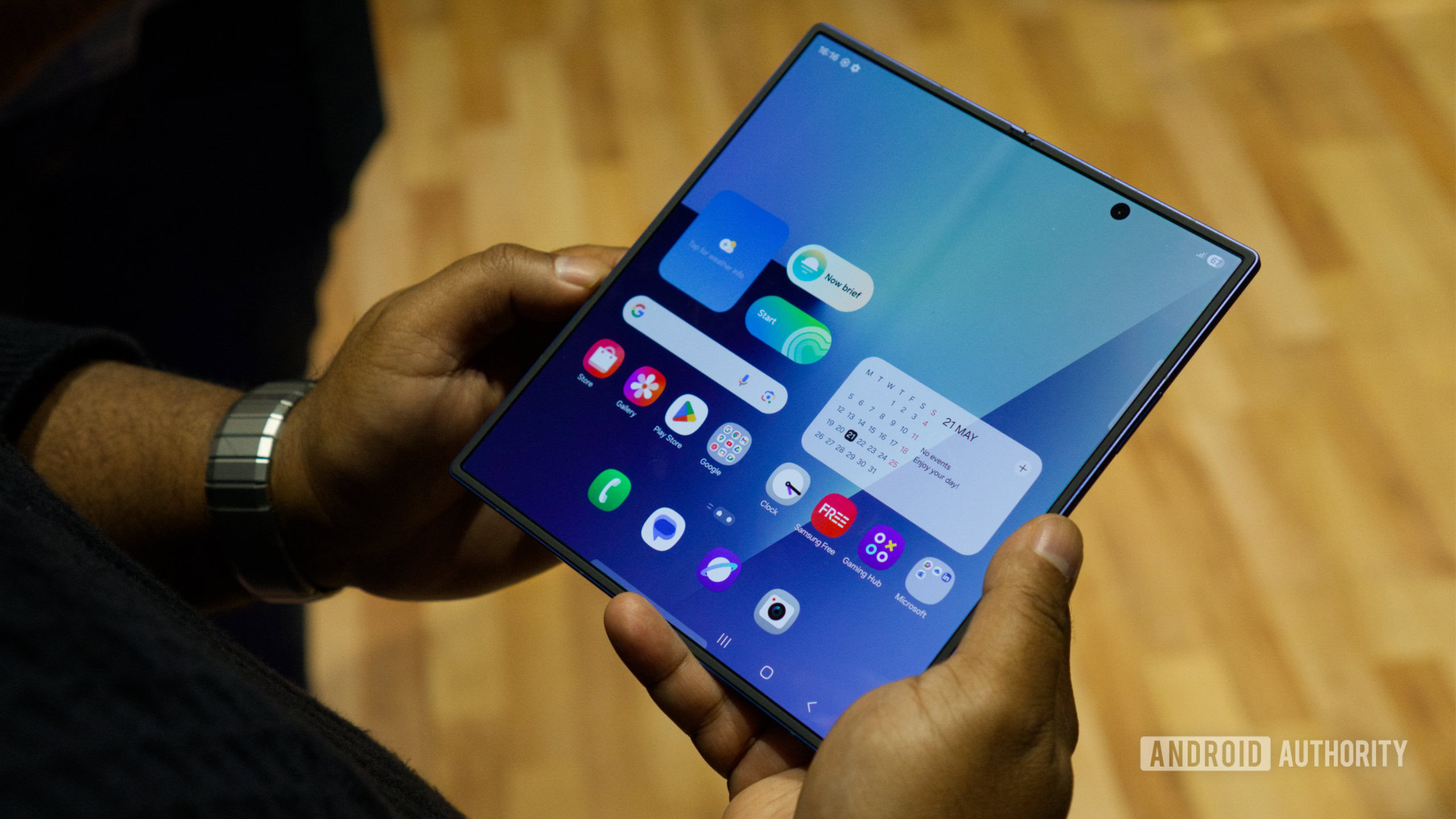
Image Credit: Androidauthority
Gemini Live just got a whole lot more useful for your Samsung Galaxy phone
- Google's Gemini Live feature now supports actions within Samsung Calendar, Notes, and Reminders during a conversation.
- Gemini Live initially allowed interactions within Google Maps, Calendar, Keep, and Tasks, with possible future support for YouTube, Spotify, WhatsApp, and Drive.
- Samsung Galaxy Z Fold 7, Flip 7, and Flip 7 FE are the first devices to feature One UI 8 based on Android 16, introducing new Galaxy AI features and Google AI capabilities like Gemini Live on the Galaxy Z Flip 7’s cover screen.
Read Full Article
19 Likes
TechCrunch
28

Image Credit: TechCrunch
Google brings Gemini to Wear OS watches, adds AI Mode to Circle to Search
- Google is rolling out Gemini to Wear OS watches, with plans to replace Google Assistant with Gemini across all devices.
- Users can interact with Gemini on their watches by saying 'Hey Google,' holding the side button, or tapping the Gemini app icon.
- New Circle to Search capabilities are introduced, allowing users to initiate searches by circling or highlighting an item on their screens.
- AI Mode in Circle to Search enables advanced reasoning and follow-up questions without switching apps, also available in Google Lens.
Read Full Article
1 Like
The Verge
138
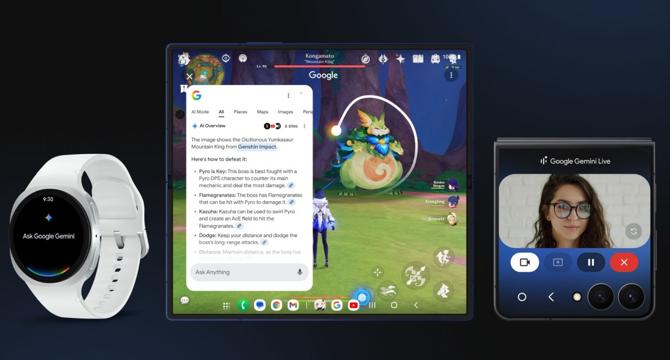
Image Credit: The Verge
Android’s Circle to Search feature gets AI and gaming upgrades
- Google is introducing AI and gaming upgrades to Android’s Circle to Search feature, with a focus on Samsung's latest Galaxy foldables and watches.
- The update includes new AI enhancements for Circle to Search and Gemini Live tools, integrating Google's search-centric AI Mode chatbot for an improved search experience.
- Users can now access AI Mode through the Circle to Search tool on Pixel and Samsung phones, allowing easier web searches without switching apps.
- The new Samsung Galaxy Z Fold 7, Galaxy Z Flip 7, and Watch 8 series will be the first devices with Android 16 and Wear OS 6, accompanied by Gemini Live updates for enhanced camera-sharing support and integration with Samsung apps.
Read Full Article
8 Likes
Blog
195
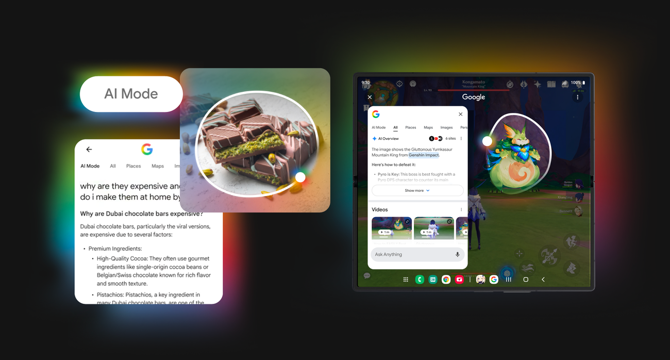
Image Credit: Blog
Dive deeper with AI Mode and get gaming help in Circle to Search
- Circle to Search, a feature allowing users to circle, highlight, or tap on their Android devices to get more information and AI insights without switching apps, is now available on over 300 million Android devices.
- New capabilities have been added to Circle to Search, including the integration of AI Mode, offering advanced reasoning and the ability to explore complex topics and ask follow-up questions without app-switching.
- Users can now access AI Mode through Lens via the Google app, enabling deeper insights and follow-up exploration for multimodal questions.
- Circle to Search now offers in-the-moment gaming help on mobile devices, allowing users to access tips without leaving their game, and upgraded AI Overviews provide more readable responses with key information and visuals.
Read Full Article
11 Likes
Blog
73
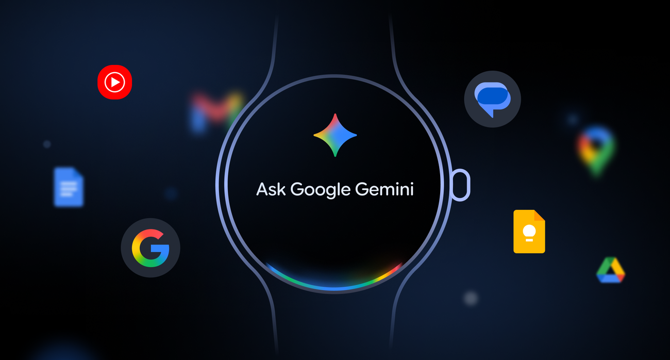
Image Credit: Blog
Gemini is coming to your Wear OS smartwatch
- Gemini, the personal AI assistant from Google, is now rolling out to Wear OS watches from various brands.
- Users can access Gemini on their smartwatches by using voice commands, the side button, or tapping the Gemini app icon.
- Gemini offers convenient features like natural language interactions for quick responses, managing tasks across apps, and assisting with remembering important details.
- Gemini is gradually becoming available on Wear OS watches running Wear OS 4+ and will also support watch brand apps on Wear OS 6 devices.
Read Full Article
4 Likes
Blog
398

Image Credit: Blog
4 new AI updates on Android coming to Samsung Galaxy devices
- New updates to Google AI capabilities on Android announced at Galaxy Unpacked event.
- Updates include AI Mode smarts, gaming help with Circle to Search, Gemini multitasking.
- Galaxy Z Fold7, Z Flip7, and Watch8 series will feature Android 16 and Wear OS 6.
- Gemini Live integration with Samsung apps for seamless multitasking and connectivity.
- Access Gemini AI features on Galaxy devices, including camera sharing and enhanced responsiveness.
Read Full Article
23 Likes
For uninterrupted reading, download the app